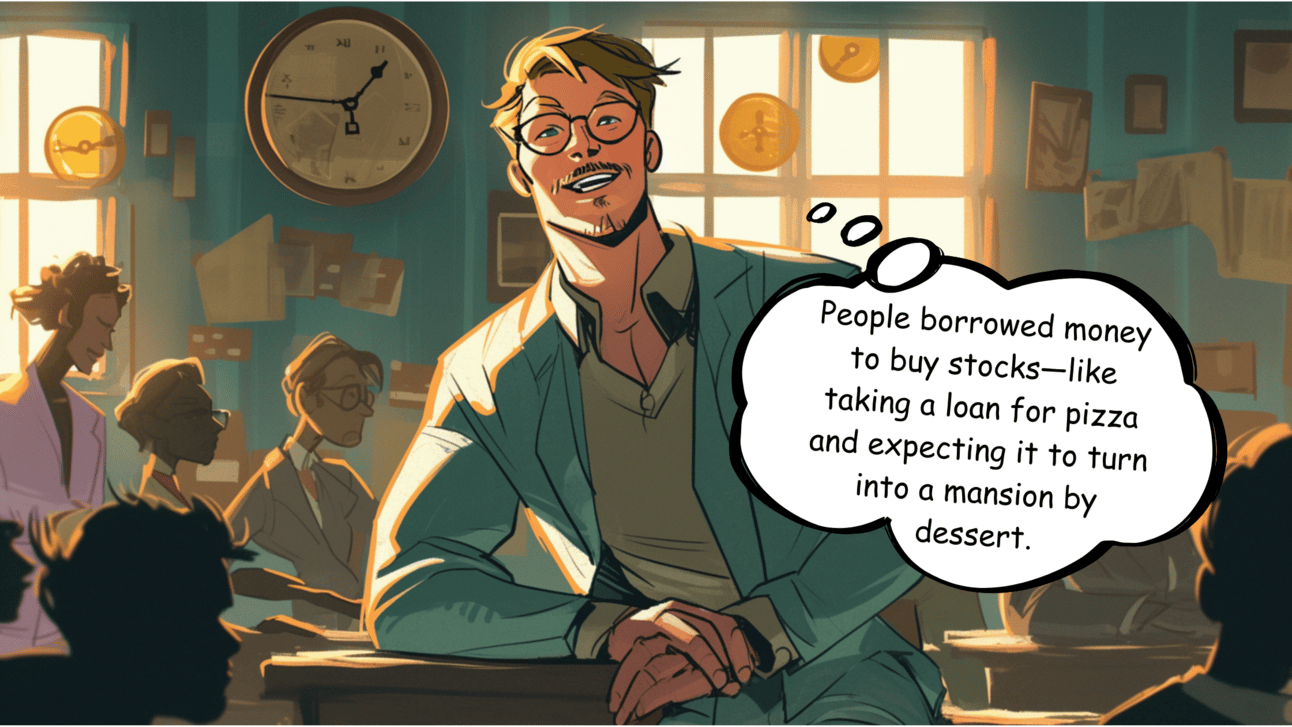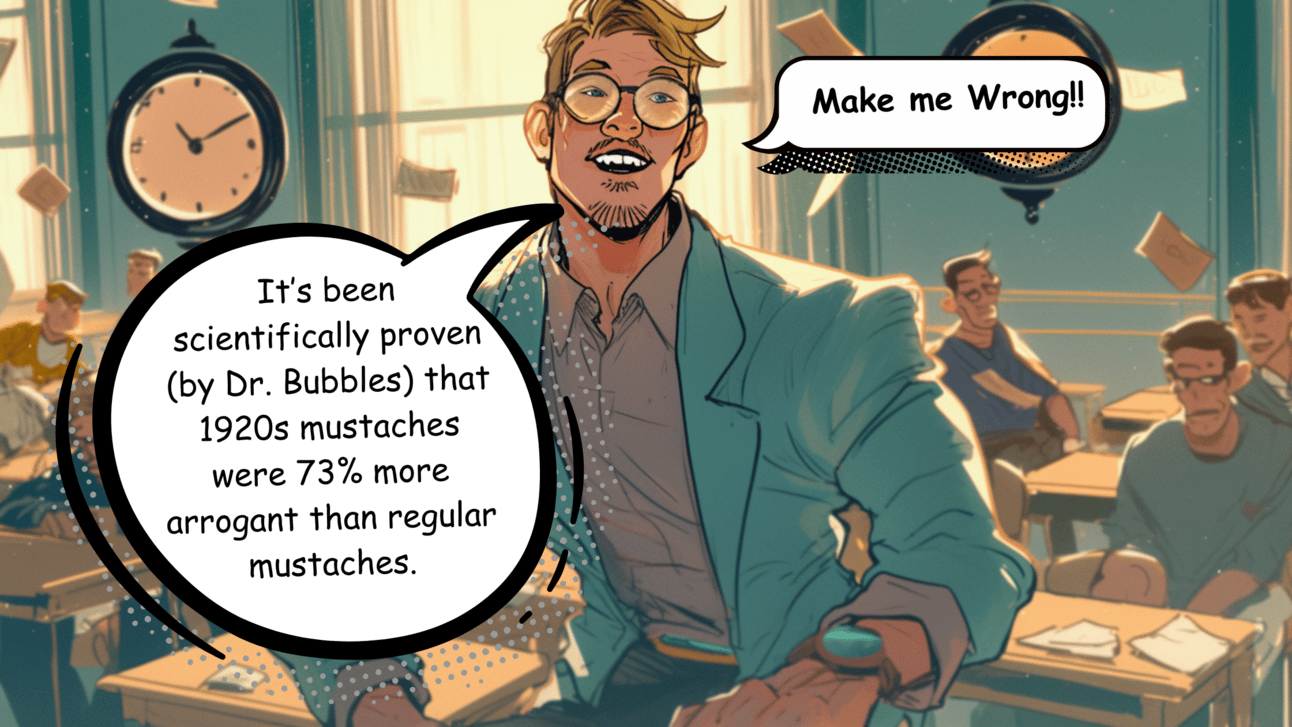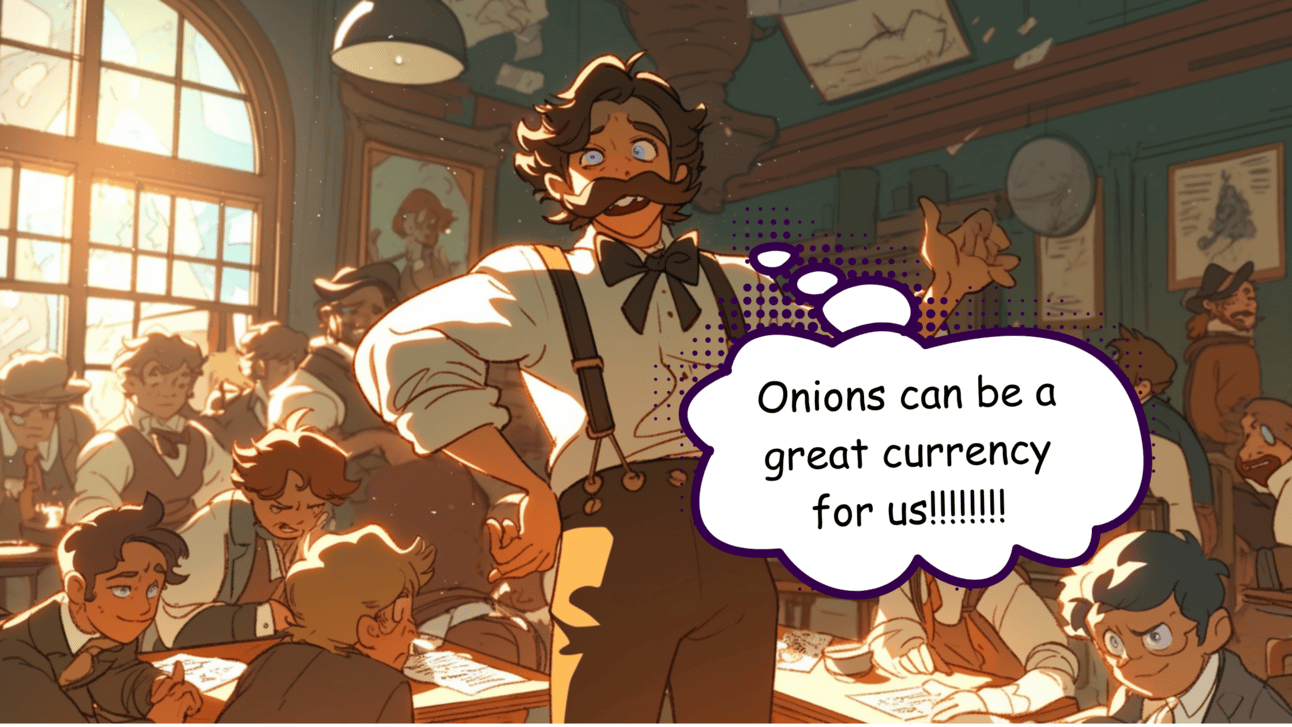Today’s lesson:
The Great Depression of 1929 —
Or as Dr. Bubbles calls it:
“Oops! All Sadness.”

Grab your notebooks, a blanket to cry into, and a very suspicious look at the stock market.
Chapter 1: What Actually Caused the Great Depression?
Alright, real talk:
The Great Depression didn’t just poof into existence because people forgot how money works.
It was a combination of disasters like:

Stock Market Bubble:
Everyone was buying stocks like it was Black Friday at a TV store.
(And they didn’t even know what the companies did. If the company made left-handed banana peelers, it didn’t matter — BUY!)Buying on Margin:
Translation: People borrowed money to buy more stocks... based on vibes and daydreams.
It’s like taking a loan to buy pizza, expecting the pizza to magically double in value by dessert.

Bank Failures:
Banks were basically built on trust and fairy dust.
When people panicked and ran to get their money, the banks were like, “Haha… about that...”Agricultural Collapse:
Farmers had a rough time too. Overproduction tanked prices. Dust storms decided to cosplay as apocalyptic sand monsters.
Everyone’s corn turned into dust-flavored sadness.Global Domino Effect:
World War I left the global economy fragile, and when America sneezed, everyone else caught financial pneumonia.
Chapter 2: And Now... The Completely Ridiculous Causes (According to Dr. Bubbles)
Because Dr. Bubbles was THERE.
(He wasn’t. But he says he was.)
He insists other crucial factors included:
Flapper Stock Tips:
People were getting investment advice from jazz musicians and bootleggers at 2 AM.The Great Pie Fight of 1929:
A secret Congressional food fight distracted politicians for three critical days.
(The stock market collapsed on Day 2. Day 3: banana cream pie won.)

Overconfident Mustaches:
It’s been scientifically proven (by Dr. Bubbles) that 1920s mustaches were 73% more arrogant than regular mustaches.
Too much swagger = financial doom.Jazz Hands Economic Policy:
Instead of real solutions, politicians just did spirit fingers at the problems.The Moon Was in Retrograde:
(Okay, that one’s still under debate.)
Chapter 3: How America Fell Face-First Into the Economic Abyss
October 24, 1929.
Black Thursday.

Stocks started dropping faster than your phone when you’re on the toilet.
People PANICKED.
By Black Tuesday (October 29), the stock market was in full freefall.
Imagine:
Grown men crying in three-piece suits.
Entire fortunes evaporating between lunch and dinner.
Wall Street looking like someone unplugged the hope machine.
Meanwhile, Dr. Bubbles claims he was outside the New York Stock Exchange holding a sign that said:
“BUY SOUP, NOT STOCKS!”
(He was escorted away by a very confused police officer.)
Chapter 4: Life During the Great Depression
Let’s just say... it wasn’t TikTok dances and frappuccinos.

Unemployment hit 25%.
(One in four people lost their jobs. The other three were selling apples on the street.)Breadlines and Soup Kitchens became the hottest new brunch spots.
(But way sadder. Less avocado toast.)Families lost homes, banks folded like cheap lawn chairs, and millions of people literally had to pack up and hit the road.
Meanwhile, the super rich?
They just... kept being weirdly rich.
(Shocker.)

Fun fact:
At one point, people started using hats, cans, and even onions as currency in local trade markets.
(Imagine paying rent with three onions and a firm handshake.)
Q&A TIME: (aka “Let’s All Pretend We’re Okay!”)
Student #1:
"Dr. Bubbles, could anyone have stopped the Great Depression?"
Dr. Bubbles:
"Sure. If time machines, economic clairvoyance, and common sense were available on Amazon Prime. Spoiler: they weren’t."
Student #2:
"Was it really all Wall Street’s fault?"
Dr. Bubbles:
"Mostly, yes. But also... maybe it was cursed jazz music. Never trust a trumpet solo after midnight."
Student #3:
"What’s the biggest lesson from 1929?"
Dr. Bubbles:
"If you see everyone getting rich overnight, you’re either in a gold rush... or a group hallucination. Either way, bring snacks."
Final Thoughts from Dr. Bubbles McSnort:
"When times get tough, just remember: America once survived by selling invisible pencils, juggling onions, and pretending everything was fine. You’ll be okay, champ."

Don’t let this chaos die in your inbox. Share it. Or print it out and frame it. Or feed it to your goldfish. I won’t judge.
Spread the nonsense: Forward this to a friend who hoards soup or trusts economic advice from pigeons. And if you’re that friend… you better subscribe before the next crisis hits.